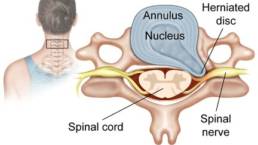Is Sitting the New Smoking?
Australians are spending more time each day sitting. As technology and infrastructure has been improving, more Australians are incorporating less healthy habits into their lifestyle. Sitting may in fact have more in common with smoking than you might think.
What we know
- The average office worker sits for 14 hours a day.
- 63% of Australian adults are now obese and overweight.
- Sitting causes our fat burning ability to drop by 90%
- Sitting increases the risk of developing depression.
- Each hour of continuous sitting reduces life expectancy by 22 minutes
- Risk of developing: Cardiovascular, metabolic diseases and musculoskeletal pain.
It is a common misconception that you can counteract the negative effects of prolonged sitting by just monitoring your diet and exercises. Sitting is harmful when done continuously regardless of lifestyle outside the office.
What can we do?
Fortunately there are a number of simple things we can do to help improve our health and counteract the negatives of sitting.
- Perform Regular stretches throughout the day
- Try to increase the amount of walking done
- Receive advice from a health professional such as a Chiropractor, Physio, OT. Getting care for the musculoskeletal system plus advice on ergonomics and management strategies can be beneficial.
- Regular checkups with your doctor is beneficial as well. Prevention is better than cure.
If you require assistance, feel free to contact us or have a chat with our friendly staff at (08) 9321 1964
Related Posts
How to Treat a Bad Ankle Sprain?
13 December 2016
Everyone has experienced an ankle sprain at some point in their lives, it may have been a mild one which resolves in a few minutes, or it could be a severe one that last for weeks to months on end. If you have sprained your ankle as a once of incident, and the pain and symptoms were "mild" there is…
0 Comments5 Minutes
How to Treat a Herniated Disc
27 April 2018
Between each of our spinal vertebrae we have an intervertebral disc. These discs play an important role in the normal functioning of our spines. They act as shock absorbers, hold the vertebrae together and allow slight movement of the spine.
0 Comments3 Minutes


